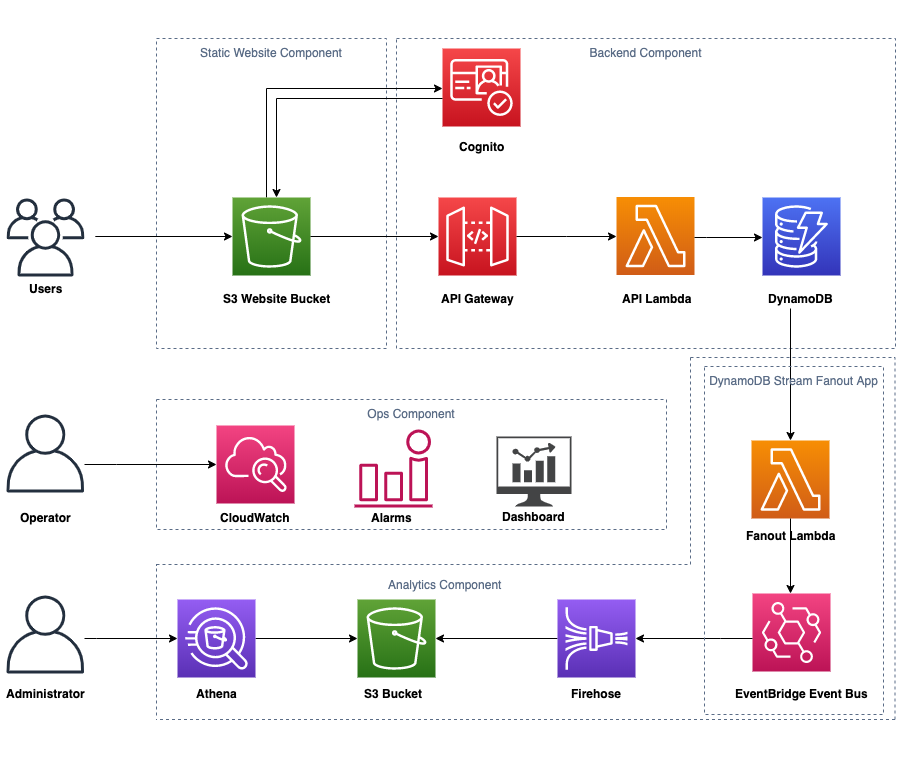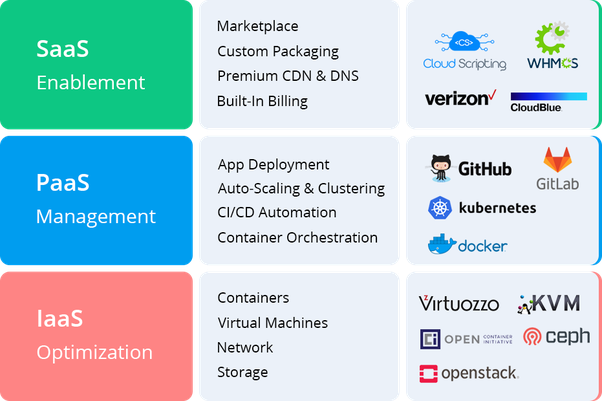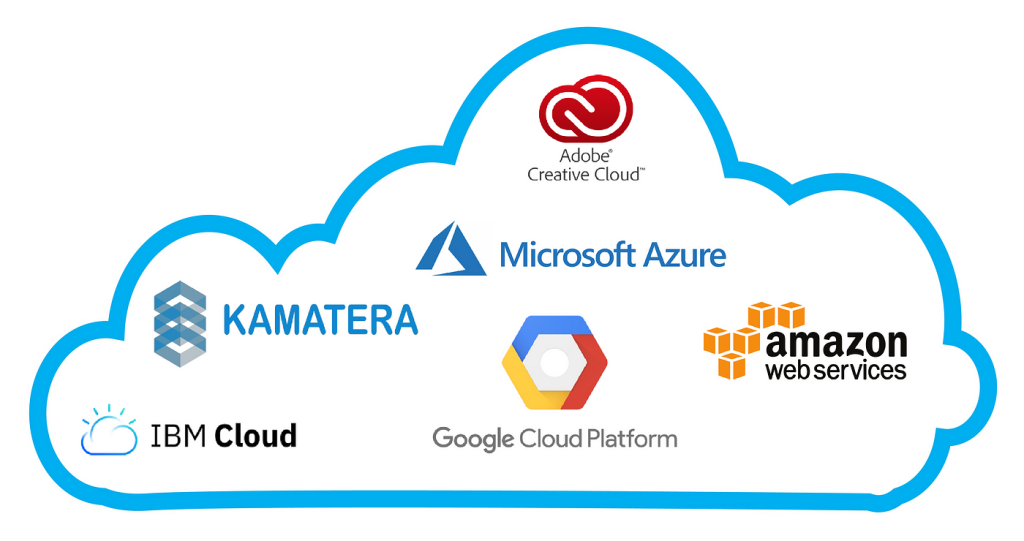The way businesses develop, implement, and manage apps and services is being completely transformed by cloud computing. This is especially true in today’s digital world when flexibility, scalability, and agility are critical. Cloud computing platforms and Platform as a Service (PaaS) services are at the vanguard of this technological revolution, enabling businesses to innovate and accelerate their digital transformation path. We dive into the world of platforms for cloud computing and PaaS solutions in this in-depth analysis, revealing their importance, features, and significant influence on contemporary IT infrastructure and application development.
Comprehending Cloud Computing Platforms: Driving Innovation
Building, deploying, and managing applications and services in the cloud is made possible for enterprises via cloud computing platforms, which are an extensive collection of services and resources offered by cloud service providers. These platforms provide a large range of on-demand and scalable infrastructure services, such as databases, networking, storage, processing power, and security.
Major providers like Amazon Web Services (AWS), Microsoft Azure, Google Cloud Platform (GCP), and IBM Cloud, which each offer a broad ecosystem of services and tools tailored to satisfy the different demands of enterprises across industries and domains, are at the foundation of cloud computing platforms. These platforms offer a variety of deployment methods, such as private, public, and hybrid cloud, so that businesses can select the one that best suits their needs.

Important Attributes and Skills
Platforms for cloud computing provide a wide range of features and functionalities to facilitate the entire application development and deployment lifecycle:
Infrastructure as a Service (IaaS)
Infrastructure as a Service (IaaS) allows businesses to develop and implement applications in a flexible and scalable way without having to make an upfront capital investment in actual hardware by providing virtual computers, storage, and networking resources as needed.
Platform as a Service (PaaS)
This approach abstracts away the underlying infrastructure difficulties and allows developers to concentrate on creating and delivering applications quickly and effectively. It does this by providing higher-level services and tools for application creation, deployment, and administration.
Containerization and Orchestration
Portability, scalability, and agility in application development are made possible by container services like Docker and Kubernetes, which are used to package, deploy, and manage applications in containerized environments.
Serverless Computing
Providing serverless computing services, like AWS Lambda and Azure Functions, allows businesses to run code in response to events without having to manage or provision servers. This reduces the overhead associated with building and deploying scalable, event-driven applications.
Managed Services
By offering managed services for artificial intelligence (AI), machine learning, databases, analytics, and machine learning, businesses may make use of cutting-edge capabilities and insights to spur innovation and competitiveness in their products and services.
Utilizations in All Sectors
Platforms for cloud computing find uses in a wide range of fields and sectors, fostering efficiency and creativity in several use cases:
Enterprise Applications
Cloud computing platforms facilitate the migration and modernization of old programs, the development and implementation of new applications, and the utilization of sophisticated technologies like artificial intelligence and analytics in enterprise environments.
E-commerce and Retail
Online storefronts, inventory control, order processing, and customer analytics are all supported by cloud computing platforms in this industry. This allows retailers to offer streamlined, customized shopping experiences across digital channels and to maximize operational efficiency and scalability.
Healthcare
Cloud computing platforms help the healthcare sector by facilitating telemedicine, electronic health records (EHR), medical imaging, and health analytics. These tools help healthcare providers increase operational efficiency, optimize workflows, and improve patient care while adhering to legal requirements and data privacy standards.
Finance and Banking
Cloud computing platforms facilitate payment processing, fraud detection, risk management, and core banking systems in the finance and banking industry. This allows financial institutions to grow, innovate, and compete in a rapidly changing digital landscape while maintaining security, compliance, and data protection.

Platform as a Service (PaaS): Quickening the Development of Applications
Platform on Demand (PaaS) is a term for a group of cloud computing services that offer an application development, deployment, and administration platform free from the hassles of infrastructure management. PaaS solutions give developers a set of tools, frameworks, and services to help them create, launch, and grow applications fast and effectively while abstracting away the underlying infrastructure. Some of PaaS’s main attributes and advantages are:
Developer Productivity
PaaS systems streamline the development process and allow for quick iteration and creativity by giving developers access to a wide range of tools, libraries, and frameworks for creating and deploying applications.
Elasticity and Scalability
Platforms as a Service (PaaS) come with inherent elasticity and scalability that enable apps to adjust their size in response to demand, optimizing performance and reducing costs without the need for human involvement.
Resource Optimization
By abstracting away the complexity of infrastructure management, PaaS platforms allow businesses to concentrate on developing and delivering features and capabilities that add value, all the while maximizing operational effectiveness and resource use.
Integration and Interoperability
Platform-as-a-service (PaaS) platforms offer integration with other cloud services and external tools, allowing for smooth integration and interoperability with current workflows and systems. This promotes innovation and cooperation inside the company.
Security and Compliance
PaaS platforms come with built-in security measures and compliance controls that guarantee the privacy, availability, and integrity of data and applications while adhering to industry standards and legal requirements.
Explore More Data Centre Management Software: Infrastructure & Optimization
Obstacles and Things to Think About
Cloud computing platforms and PaaS solutions have numerous advantages, but they also come with some drawbacks and things to think about.
Vendor Lock-In
When utilizing proprietary PaaS solutions, organizations may experience vendor lock-in, which restricts their flexibility and makes it more difficult to move their apps to new environments or switch providers.
Data Security and Compliance
In cloud computing environments, ensuring data security and regulatory compliance is a challenge that calls for strong security measures, encryption, and compliance management procedures.
Performance and Reliability
Monitoring, optimization, and proactive management of resources, workloads, and dependencies are necessary to ensure the performance and reliability of applications in cloud settings.
Cost management
Because pricing models, resource use, and billing procedures can be complex, managing costs and optimizing expenditures in cloud settings can be difficult. To control costs and maximize return on investment, companies must implement cost management techniques and technologies.

Platforms for Cloud Computing in the Future and PaaS Solutions
PaaS solutions and cloud computing platforms are projected to become more in demand as businesses embrace digital transformation and cloud adoption. The cloud computing landscape is about to change as a result of emerging trends including serverless architectures, edge computing, and AI-driven automation. These innovations will make it possible for businesses to develop, implement, and maintain applications more successfully and efficiently.
Furthermore, the coming together of blockchain, quantum computing, and the Internet of Things with cloud computing platforms promises to open up new avenues for disruption and innovation in a variety of fields and businesses. Future cloud computing platforms and PaaS solutions have the potential to completely change how businesses develop, implement, and manage applications in the digital era. From edge intelligence and real-time analytics to decentralized apps and quantum-ready platforms, these technologies will have a significant impact.
Conclusion
To sum up, Platform as a Service (PaaS) offerings and cloud computing platforms are essential for fostering creativity, adaptability, and productivity in the creation of new IT infrastructure and applications. Platforms for cloud computing and PaaS solutions enable businesses to innovate at scale, stay competitive, and accelerate their digital transformation journeys with their extensive feature sets, capabilities, and disruptive potential.










